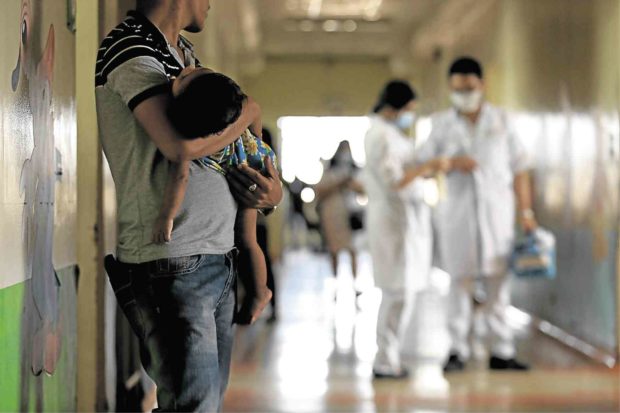Hospitals in SUCs with medical degree programs pushed
MANILA, Philippines — Senator Sonny Angara has filed a bill seeking to establish a hospital in every state university and college offering a medical program in a bid to fortify the country’s health system.
Under Angara’s Senate Bill No. 1850 or the proposed Healthcare Facility Augmentation Act, there should be one hospital in state universities and colleges (SUCs) that offer a medical degree.
The hospitals, according to the measure, should have a bed capacity of not less than 50 within the grounds of the SUCs.
“We need to strengthen our healthcare system and two of the initial steps that we can take is to produce more doctors and nurses and to increase the number of hospitals that will serve our people,” Angara said in a statement Monday.
He pointed out that when the Philippines saw a surge in coronavirus disease 2019 (COVID-19) cases, the country was confronted with the reality that there were not enough hospital beds as well as doctors and other medical personnel to attend to patients.
Angara cited a recent study conducted by the University of the Philippines which showed that the country has an average of 3.7 doctors for every 10,000 members of the population.
This is way below the recommendation of the World Health Organization of 10 doctors for every 10,000 individuals.
Only the National Capital Region (NCR) was able to meet the said ratio, he noted.
For other areas such as Region 4-B, Angara said that the ratio is only 1.8 to 10,000 while in the Bangsamoro Autonomous Region in Muslim Mindanao, it was even lower at 0.8 to 10,000.
Further, the same UP study also showed that there are only 6.1 beds for every 10,000 Filipinos on average, with the NCR once again having the highest at 13.5. For Region IV-B, the ratio is 1 hospital bed per 10,000 population.
“The reality that six out of 10 Filipinos die without seeing a medical professional is very alarming,” Angara said, referring to data from the Philippine Statistics Authority.
“After seeing the data, it explains why our healthcare system was overwhelmed when we were hit by the COVID-19 pandemic,” he added.
The senator added that aside from increasing hospital bed capacity, the construction of these SUC hospitals “will also serve as the training ground for the medical students of the SUCs just like what UP-PGH (University of the Philippine-Philippine General Hospital) has long been doing.”
“Hindi na sila kailangan pa lumayo sa sarili nilang bakod para makakuha ng experience na kailangan para maging doktor at nars,” he said.
(They would no longer need to go elsewhere to gain experience they need to become a doctor or a nurse.)
At present, a total of nine SUCs offer medical degrees in the country, namely the University of Northern Philippines, Mariano Marcos State University, University of the Philippines- Leyte, Cagayan State University, Mindanao State University- General Santos, Bicol University, West Visayas State University, Mindanao State University- Marawi, and University of the Philippines- Manila.
The nine SUCs with medical degree programs are situated in eight regions, which Angara said poses a “major hindrance” to the students not situated in those regions, who may want to enroll in SUCs and pursue a medical degree.
Angara earlier filed Senate Resolution No. 528 which seeks to look into the financial requirement needed to establish public medical schools in every region of the country.
He also filed Senate Resolution No. 529 to determine the financial requirement to achieve the desired ratio of healthcare workers to the country’s population.
“As we further improve our healthcare system especially with the soon-to-be fully implemented Universal Health Care Law, there is an urgent need for us to utilize what many consider to be one of our best resource—our healthcare workers, hence it is only vital that the government examine how we can fully utilize and appreciate their value to the country by first determining the needed cost to provide a competitive compensation to these healthcare workers in the long run,” the senator said.

